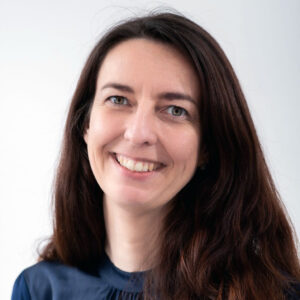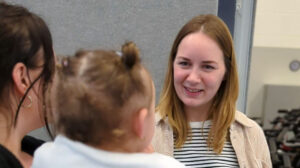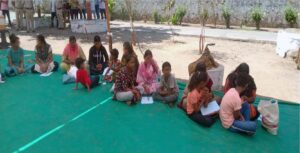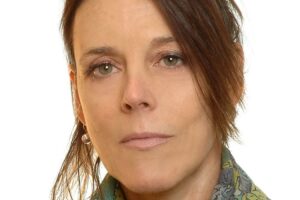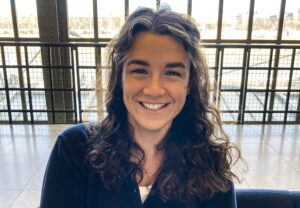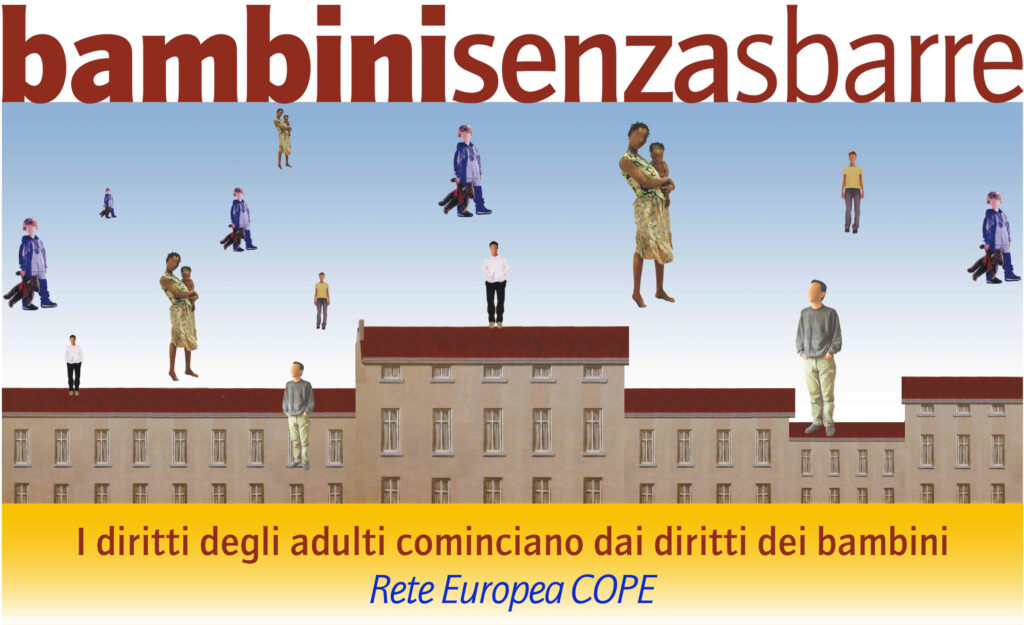‘Children with imprisoned parents are among the most vulnerable and neglected groups.‘
Žaneta Dvořáčková is the Deputy Director of Czech Prison Fellowship and the Director of all PFCZ programs for families and children of incarcerated parents.
What is Czech Prison Fellowship, and what does it do?
Czech Prison Fellowship is a nonprofit organisation dedicated to helping all those affected by crime—both direct and secondary victims, offenders (during and after imprisonment), and the families and loved ones of both, with a special focus on children with imprisoned parents and their caregivers. We operate based on restorative justice principles and advocate for the establishment of small, community-based prisons. Additionally, we work towards systemic changes in the justice system and policies concerning children with imprisoned parents.
What is the story of Czech Prison Fellowship?
We initially began by meeting with imprisoned people inside prisons, offering them support to ensure they were prepared for reintegration into society upon release. Over time, we increasingly encountered issues related to their families and children. At that time, there was no support available in the Czech Republic for children with parents in prison—they were overlooked and forgotten. We started by creating programs to strengthen the relationships between children and their incarcerated parents, eventually expanding to direct support for the children and their caregivers. Today, we offer a comprehensive system of care for children with imprisoned parents.
Alongside these initiatives, we focused on raising awareness about the challenges children with imprisoned parents face and about their rights, gradually gaining support from key stakeholders and high-ranking officials. We have worked to break down societal prejudices and highlight the urgency of supporting children. Currently, we collaborate with government ministries responsible for families and children impacted by parental imprisonment.
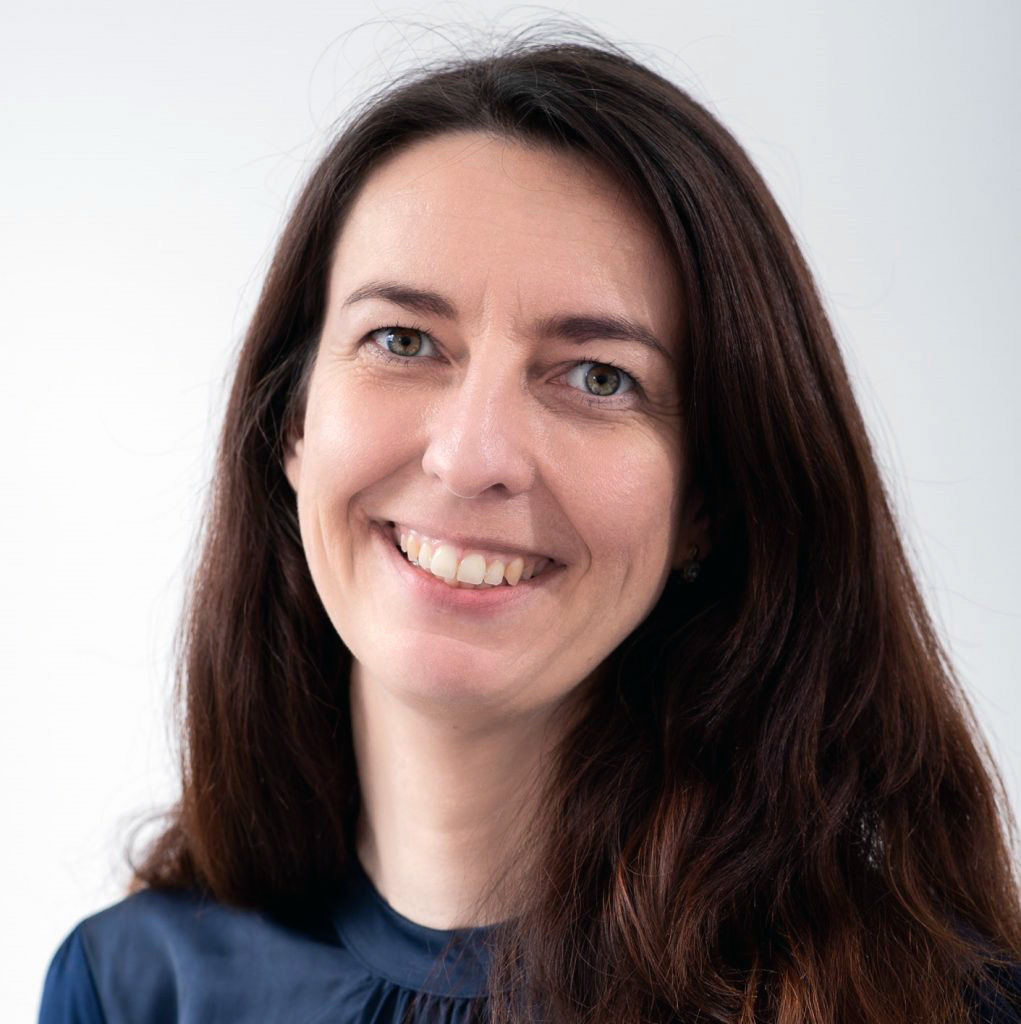
What are the major achievements of Czech Prison Fellowship?
In terms of supporting children with imprisoed parents, our most significant achievement is the development of a comprehensive support system. This includes direct child support—mentorship, personal guidance, educational assistance and recreational activities. We also facilitate and strengthen parent-child relationships through special prison visits, accompanying children on regular visits, preparing families for these encounters, and assisting with the reintegration of released parents into their families. Additionally, we provide support to caregivers through group meetings, mentorship, material and financial aid and food assistance. Over the years, we have helped more than 15,000 children with imprisoned parents and currently support nearly 3,000 children and their families annually.
In terms of systemic change and awareness, we have successfully conducted a research project in collaboration with Masaryk University, leading to valuable findings. We also played a key role in the creation of a government working group focused on the rights of children with imprisoned parents, led by the Czech government’s Human Rights Commissioner. Furthermore, we actively contribute to policymaking and methodology development at the governmental level, and some of our projects have received the patronage of the First Lady of the Czech Republic.
What is your background?
I have been working on issues related to children with imprisoned parents for over ten years, both in direct support for children and families and in the areas of systemic change and advocacy. I hold a degree in special education with a focus on behavioural and conduct disorders in children, along with numerous certifications in working with children in a vulnerable situation. My approach is trauma-informed and based on sensitive practices in the best interests of children.
Why your commitment in children rights?
Children with imprisoned parents are among the most vulnerable and neglected groups. Every child has the right to a dignified life and a hopeful future—no child should be forgotten.
Why did you decide to organise GWMD?
GWMD is a wonderful opportunity for children with imprisoned parents to experience something they are often deprived of—close contact with their parent in a safe and positive environment. It allows them to create lasting memories together, strengthening their bond, fostering hope for the future, and motivating them to overcome challenges.
A follow-up event—a roundtable discussion held under the patronage of a Member of Parliament at the Czech Chamber of Deputies—brought together senior government officials, prison service representatives and organisations working with incarcerated parents and their families. The most impactful moments were the moderated conversations with children and their caregivers. It was profoundly symbolic that these children could voice their experiences and needs in a space where national decisions are made. The event received significant media attention.
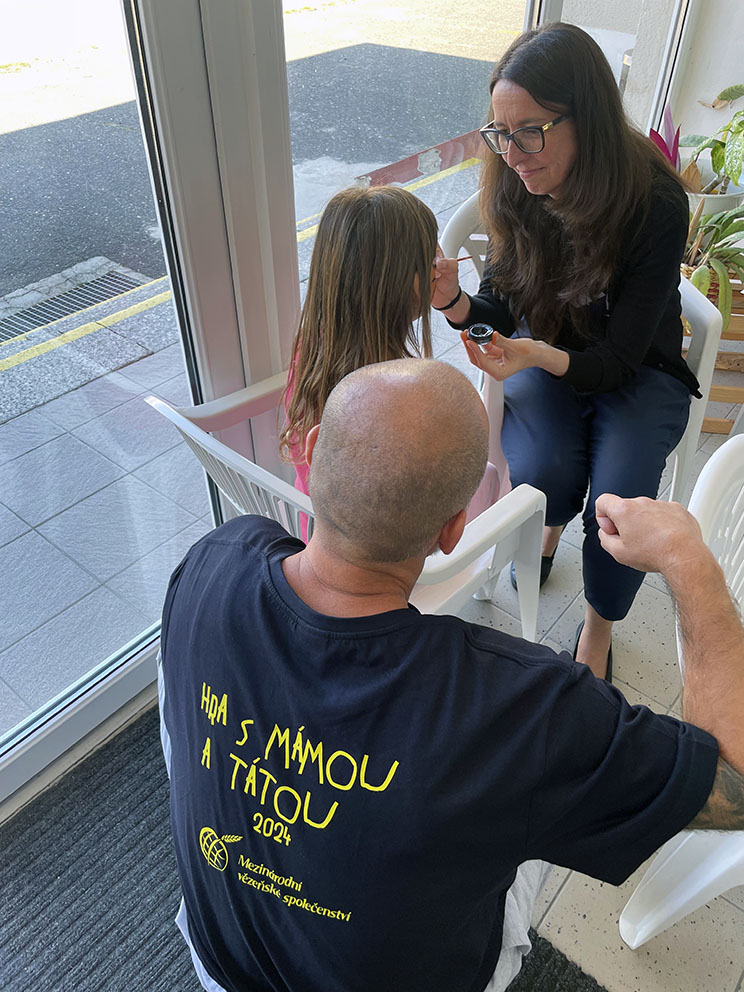
What is involved in organising an event like GWMD?
Organising GWMD is quite demanding, involving coordination with prisons, arranging transportation for families and children, planning the day’s activities, and organising the follow-up roundtable discussion. Throughout the process, PR and media engagement are crucial to ensuring maximum outreach and awareness.
Do you think that GWMD is a good advocacy and communication tool for Czech Prison Fellowship, especially towards local, national and international institutions?
Yes, absolutely.
What are the reactions of children?
Initially, children tend to be cautious—this type of visit is not common in the Czech Republic. However, as their initial apprehension fades, they relax, and we witness the joy in their eyes, warm embraces and even tears of emotion throughout the day.
What are the reactions of the imprisoned parents?
Very similar to those of the children. Some parents participating in this program met their children inside the prison for the first time. For various reasons, children had not visited their parents for a long time, making such reunions deeply emotional.
What are the reactions of the imprisoned parents’ family?
Again, much like the reactions of the children and their parents. Families are incredibly grateful, especially when they see how much these moments mean to the children.
Can you tell us some meaningful episodes occurred during the event?
One mother attended GWMD with her son, who has autism and struggles with separation from his father. Regular prison visits are highly stressful for him. She arrived with concerns about how he would react to the activities and seeing his father. At first, he was hesitant, but as the day progressed, he became more comfortable and even joined in a game of football—something he had never done before. He was so immersed in his time with his father that his mother was moved to tears. She later shared her experience at the Czech Parliament.
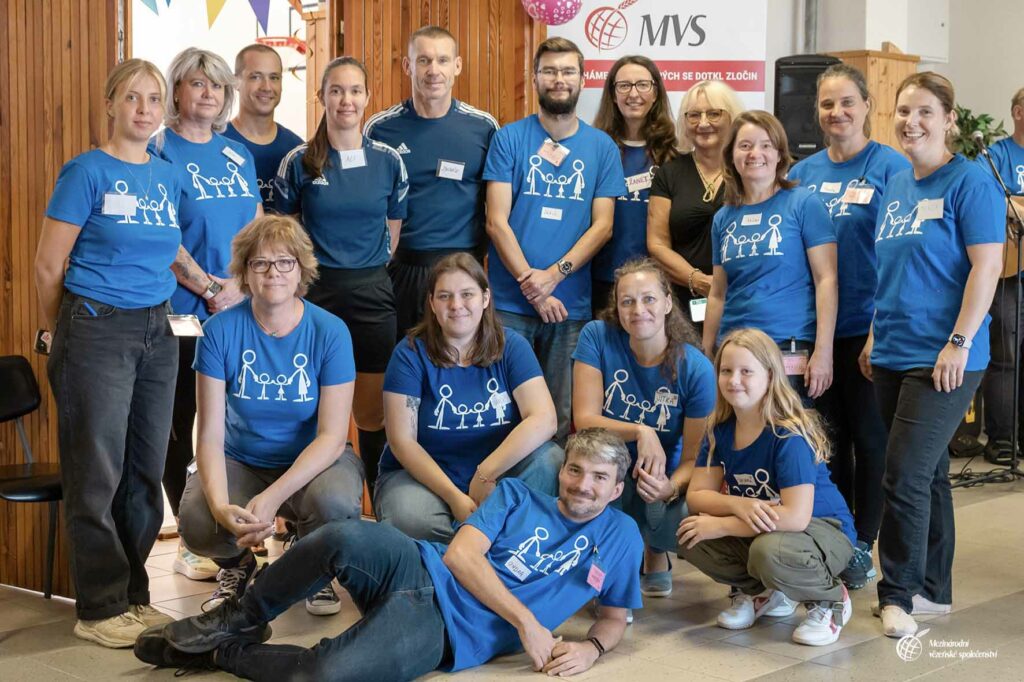
What is the reactions of the prison administration? What is your collaboration with them like?
As we have been organising similar events for several years, our collaboration with the prison service is excellent. They recognise the importance of these initiatives and actively support them.
What level of prison institutions were involved in GWMD: local, national?
Both local prisons where the events took place and, at the roundtable discussion, multiple prison directors and senior officials from the Czech Prison Service, including its highest-ranking representative.
What are the positive and critical aspects of GWMD project?
The positive aspects have been mentioned above. The overall evaluation of the project has been overwhelmingly positive. The only critical aspect is the recurring wish from families that these events could happen more frequently. Unfortunately, due to financial and staffing limitations, prisons cannot organise such initiatives independently, and nonprofit organisations like ours are also constrained by limited funding.

